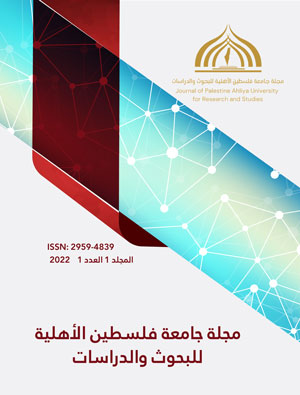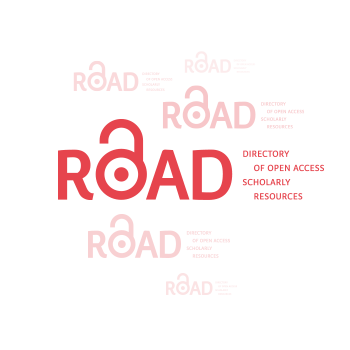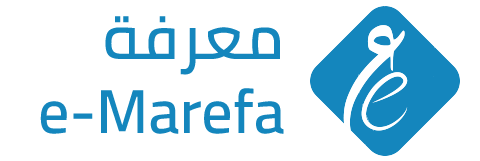تصورات طلاب اللغة الإنجليزية كلغة أجنبية في فلسطين لاستخدام “Edmodo” في تنمية مهارات الكتابة لديهم
DOI:
https://doi.org/10.59994/pau.2022.1.132الكلمات المفتاحية:
التعلم المدمج، Edmodo، أساليب (تعليمية) مختلطة، التعلم باستخدام الهاتف المحمولالملخص
تبحث الدراسة الحالية تصورات الطلبة الفلسطينيين تجاه استخدام منصة التعلم الإلكتروني Edmodo في تطوير مهارات الكتابة لديهم في جامعة فلسطين الأهلية في بيت لحم. شارك في الدراسة ستة عشر طالباً من طلاب السنة الثانية من تخصص اللغة الإنجليزية ممن يدرسون مساق مهارات التواصل الشفهي 2 في فصل الربيع 2019 – 2020. اعتمد الباحثون نهج الأساليب المختلطة، إذ استخدموا استبانة تتكون من 27 فقرة بهدف استنباط تصورات الطلبة تجاه استخدام Edmodo في تطوير مهاراتهم الكتابية والعقبات التي واجهتهم خلال استخدامهم للمنصة (منصة التعليم الإلكتروني). بالإضافة إلى ذلك، تم جمع بيانات نوعية معمقة من ردود الطلبة المكتوبة في مهمتهم الدراسية النهائية التي وضعت على منصة التعلم الإلكتروني Edmodo بشكل عام، أظهرت نتائج الدراسة أن لدى الطلبة تصورات إيجابية تجاه استخدام Edmodo في تطوير مهارة الكتابة والتعلم التعاوني. على الرغم من ذلك، تجدر الإشارة أن عدداً من الطلبة عكسوا ردود فعل سلبية نتجت عن الصعوبات التكنولوجية وخبراتهم المحدودة لاستخدام Edmodo.
التنزيلات
المراجع
Abeysekera, L., & Dawson, P. (2015). Motivation and cognitive load in the flipped classroom: definition, rationale and a call for research. Higher education research & development, 34(1), 1-14.
Al-Naibi, I. H., Al-Jabri, M., & Al-Kalbani, I. (2018). Promoting Students' Paragraph Writing Using EDMODO: An Action Research. Turkish Online Journal of Educational Technology-TOJET, 17(1), 130-143.
Cronbach, L. J. (1951). Coefficient alpha and the internal structure of tests. psychometrika, 16(3), 297-334.
DiMaggio, P., Hargittai, E., Celeste, C., & Shafer, S. (2004). Digital inequality: From unequal access to differentiated use. Social inequality, 355-400.
Ekici, D. I. (2017). The use of Edmodo in creating an online learning community of practice for learning to teach Science. Malaysian Online Journal of Educational Sciences, 5(2), 91-106.
Ekici, D. I. (2017). The Use of Edmodo in Creating an Online Learning Community of Practice for Learning to Teach Science. Malaysian Online Journal of Educational Sciences, 5(2), 91-106.
Fuchs, C., & Horak, E. (2008). Africa and the digital divide. Telematics and informatics, 25(2), 99-116.
Garrison, D. R., & Kanuka, H. (2004). Blended learning: Uncovering its transformative potential in higher education. The internet and higher education, 7(2), 95-105.
Glaser, B. G., & Strauss, A. L. (2009). The discovery of grounded theory: Strategies for qualitative research. New Brunswick: Transaction Publishers.
Graham, C. R. (2006). Blended learning systems. The handbook of blended learning: Global perspectives, local designs, 3-21.
Hrastinski, S. (2019). What do we mean by blended learning?. TechTrends, 63(5), 564-569.
Jokar, M., & Soyoof, A. (2014). The influence of written corrective feedback on two Iranian learners’ grammatical accuracy. Procedia-Social and Behavioral Sciences, 98, 799-805.
Mapolelo, D. C., & Akinsola, M. K. (2015). Preparation of Mathematics Teachers: Lessons from Review of Literature on Teachers’ knowledge, Beliefs, And Teacher Education. International Journal of Educational Studies, 2(1), 01-12.
Nunan, D. (1996). Towards autonomous learning: some theoretical, empirical and practical issues (pp. 13-26). Taking Control: Autonomy in Language Learning. Hong Kong: Hong Kong University Press.
Purnawarman, P., Susilawati, S., & Sundayana, W. (2016). The use of Edmodo in teaching writing in a blended learning setting. Indonesian Journal of Applied Linguistics, 5(2), 242-252.
Scott, H. E. (2018). Through the wall of literacy: Transformative practice in social networks among GCSE re-sit Further Education students. Education+ Training, 60(6), 569-583.
Sharples, M., Adams, A., Ferguson, R., Mark, G., McAndrew, P., Rienties, B., ... & Whitelock, D. (2014). Innovating pedagogy 2014: exploring new forms of teaching, learning and assessment, to guide educators and policy makers. The Open University.
Smith, M., & Gurton, P. (2020). Flipping the classroom in teacher education. Flipped Classrooms with Diverse Learners: International Perspectives, 221-238.
TEFL-ePAL (2020). Erasmus+ funded project. Retrieved from: http://tefl-epal.ps/
Thompson, B. (2002). Score reliability: Contemporary thinking on reliability issues. Sage publications.
Traxler, J. (2016). Mobile Learning Research: The Focus for Policy-Makers. Journal of Learning in Development, 3(2), 7-25
Traxler, J. (2017). Learning with Mobiles in Developing Countries –Technology, Language and Literacy. International Journal of Mobile & Blended Learning, 9(2), 1-15
Traxler, J., & Smith, M. (2020). Data for development: Shifting research methodologies for COVID-19. Journal of Learning for Development, 7(3), 306-325.
Vaughan, M. (2014). Flipping the learning: An investigation into the use of the flipped classroom model in an introductory teaching course. Education Research and Perspectives, 41, 25-41.
Yough, M., Merzdorf, H. E., Fedesco, H. N., & Cho, H. J. (2019). Flipping the classroom in teacher education: Implications for motivation and learning. Journal of Teacher Education, 70(5), 410-422.
Yusuf, Q., Yusuf, Y. Q., Erdiana, N., & Pratama, A. R. (2018). Engaging with Edmodo to teach English writing of narrative texts to EFL students. Problems of Education in the 21st Century, 76(3), 333-349.

التنزيلات
منشور
كيفية الاقتباس
إصدار
القسم
الرخصة
الحقوق الفكرية (c) 2023 مجلة جامعة فلسطين الأهلية للبحوث والدراسات

هذا العمل مرخص بموجب Creative Commons Attribution 4.0 International License.
مجلة جامعة فلسطين الاهلية للبحوث والدراسات تعتمد رخصة نَسب المُصنَّف 4.0 دولي (CC BY 4.0)











